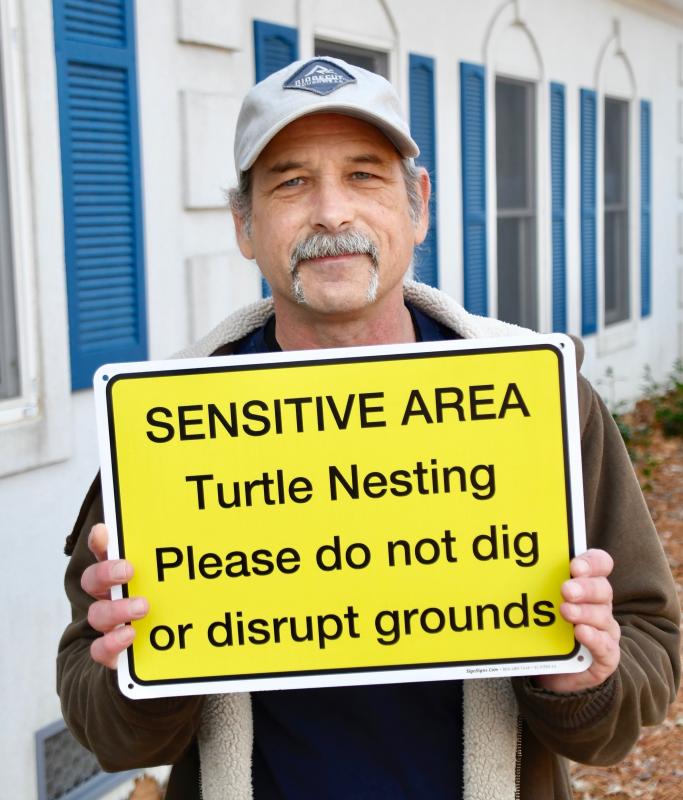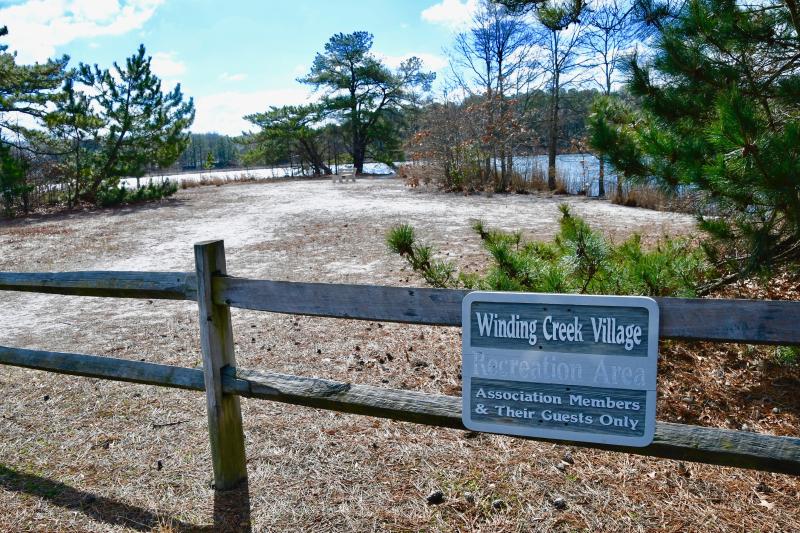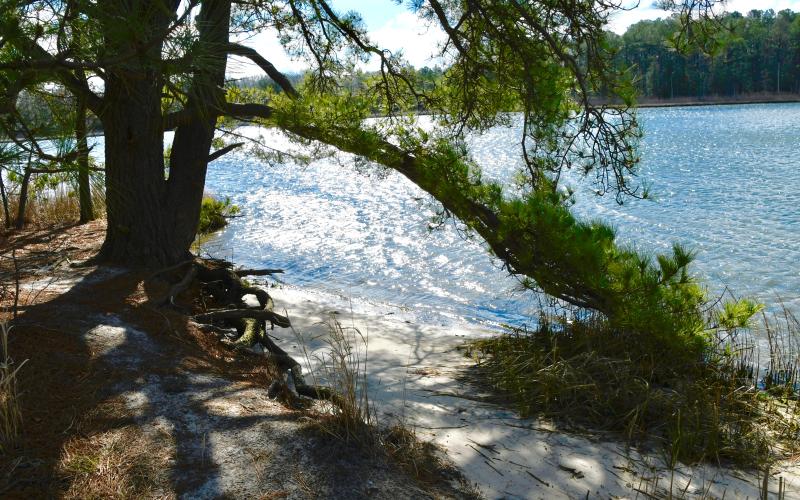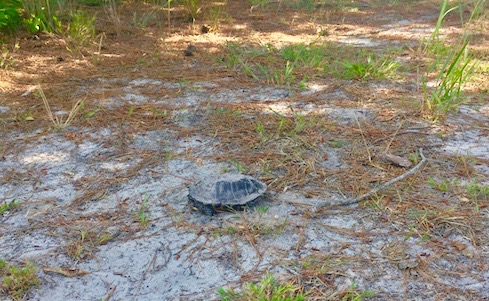Dan Phillips on a mission to protect terrapins
Disputes between residents and their community homeowners associations are not unusual, but the ongoing argument Dan Phillips is having can be considered unique.
Phillips is on a mission to protect a diamondback terrapin nesting area in his community.
Phillips said he has been reaching out to residents and the board of governors of Winding Creek Village near Long Neck since 2019 to alert them about the nesting site in a sandy area along the shores of Guinea Creek. But, he says, the spot remains a recreation area for the community.
“It's an area that is separated from the rest of community, but people do go there. Now that the community considers it a recreation area, I'm afraid the area will be destroyed,” he said.
He's also concerned that riding mowers on the parcel will destroy the nesting sites. At one point, he said, there were 12 nests in the sector.
He said groups of youngsters play football at the site and dig in the sand, which can destroy nests.
He's had signs made to post at the site to prohibit mowing in a sensitive area but has not been allowed to put them up.
Posted from May-July
Mike Phoebus, president of the Winding Creek board of governors, said the board met with Phillips in December 2021 and agreed to post a sign at the site from May to July as he requested.
Phoebus said several paper signs have been posted by Phillips over the past few months, and they were removed because he did not have permission from the board to post them.
He said Phillips asked the board to post a no-mowing sign on the parcel where he saw “sea turtles.”
“The sea turtles were in fact diamondback terrapins, which are nesting all over the Guinea Creek shore lines. We told Mr. Phillips we would place the sign from May to July as he requested, which covers the terrapin nesting time,” Phoebus said.
“As a board, we cannot quarantine a parcel of land that has been designated as a community recreational area since 1977,” he said. “Since meeting with Mr. Phillips, the board has been following the advice on turtles from Nate Nazdrowicz, the state's expert herpetologist with the DNREC Division of Fish and Wildlife.”
On March 13, the board adopted six common property rules. which prohibit signs without board approval and prohibit use of common grounds for private use without written board approval and only on a temporary basis. Failure to comply with the rules could result in fines or suspension of common-space use privileges.
Biologist: Ideal nesting site
Phillips was able to get a site visit from Jason Davis, a Delaware Division of Fish & Wildlife biologist. In a report to the community, Davis said the sandy spot is an ideal nesting site for diamondback terrapins as their population continues to decline in the Inland Bays area.
Although not an endangered species, the diamondback terrapin is considered a federal and state species of concern.
“Maintaining this habitat in its current state is important to the local terrapin population,” Davis wrote. “If non-native grasses invade the site, such as the ones growing in the adjacent lawns, they will take over and destroy the habitat.”
In his report, Davis suggested that mowing of the site should, at least, be restricted to once or twice per year with a push-behind mower.
He said mowers can spread non-native species and also compact the soil over time, making it harder for females to dig their nests. “Compaction of the soil also threatens the terrapin hatchlings that may overwinter in the nest until the following summer,” he wrote.
Female terrapins are known to return to nests year after year, which puts them at risk if the habitat is changed, Davis wrote.
The females wander onto the site for nesting in June and July to lay eggs, and the young hatch in late summer or early fall, with some hatchlings overwintering in the nest to emerge the following spring or summer.
“The site really needs to be protected all year,” Phillips said.
Phillips: Not stopping
“I have a passion to protect as much as I can,” Phillips said. “We purchased an empty lot beside us so we have 2 acres of woodlands.”
He has gone as far as standing out in front of the community every day for a week with a sign alerting residents about the nesting site. And, he said, he will protest again to raise awareness.
Phillips, a semi-retired construction manager and mechanical and electrical inspector/consultant, moved to the community with his wife Michele in 2017 from Towson, Md.




















































